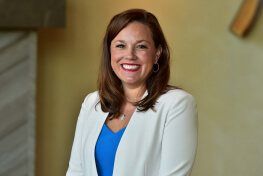Vote by Sharing
Unite 100 000 Women in Tech to Drive Change with Purpose and Impact.
Do you want to see this session? Help increase the sharing count and the session visibility. Sessions with +10 votes will be available to career ticket holders.
Please note that it might take some time until your share & vote is reflected.
Session: Three warnings. Two cyber threats. One mandate. Zero Trust.
This shift of the global workforce looks to be a permanent change. Despite widespread Zoom fatigue, it seems like users generally like it. The move to cloud and hybrid IT environments—along with increasing numbers of cloud-based systems, remote workers, and connected devices—are constantly expanding and dissolving the network perimeter. It wasn’t that long ago that a typical user would enter a building, go to a workstation, login and access everything they needed via on-premises servers. As digital strategy and cloud adoption increased, the way in which users accessed their IT resources is changing. The anticipated growth of smart devices, 5G, edge computing, and artificial intelligence promises to create even more data, connected nodes, and expanded attack surfaces.And the shift also comes with a mandate: Do more than enable work for anyone, from anywhere; ensure that it’s secure. That’s no small task. At a time with reports of security threats increasing by 400% compared to pre-pandemic levels, IT teams must be more prepared than ever.
Zero Trust means “Trust Nothing, Verify Everything.” This talk will lay out the future of work through a Zero Trust framework designed to meet modern cyber security demands. Some people mistakenly think Zero Trust is about making a system trusted, but it really involves eliminating the concept of trust from cybersecurity strategy. By doing this, every user, packet, network interface, and device is granted the same default trust level: zero.
Shifting toward a Zero Trust approach to cybersecurity can enhance security posture and minimize data risk. Foundational capabilities such as IT asset management and data governance are important to fully realize the benefits of this approach. The talk will explain why organizations should have an understanding of what data exists and the appropriate security controls to protect it. Aligning to Zero Trust also signals organizational commitment to a more proactive approach to cyber defense, which is another driver considering the prevalence of remote work.
Adoption does demand a shift in skillset of practitioners needed to drive adoption of Zero Trust in a meaningful way. Zero trust is a journey best taken one step at a time. This is transformational change. During this talk, you’ll learn how to help your security team and organization migrate their most critical assets to the Zero Trust environment.
Key Takeaways
- Three warnings. – This will not be easy. This will not go quickly. There is no better choice for a secure future
- Two cyber threats - Remote work and digital transformation
- 3. One mandate. Zero Trust
Bio
20+ year cybersecurity professional, Emily Mossburg leads Deloitte’s Global Cyber strategy driving the continued evolution and expansion of the practice’s global reach, innovative cyber capabilities and team of 22,000+ cyber professionals worldwide. Deloitte was recently ranked No. 1 globally by Gartner in Security Consulting Service for the ninth year in a row.Mossburg joined Deloitte’s cybersecurity practice in the US more than 17 years ago. In that time, she has been integral to helping some of the firm’s largest, most strategic clients to understand their cyber posture, transform their cyber program during business and marketplace shifts, and strengthen their cyber programs when faced with cyber incidents. This included implementation of new programs and solutions in areas such as data risk, incident and breach response, identity management and cyber resilience. In addition, she has served as a trusted advisor to client leadership including CIOs, CTOs and CISOs, which included a myriad of enterprise security challenges and program improvements.
Emily Mossburg is a recognized leader and authority on cybersecurity and was recently named one of the “100 Fascinating Females Fighting CyberCrime” by Cybersecurity Ventures.
Mossburg’s insights have also been published in Forbes on topics such as securing a remote workforce and SC Magazine on diversity in the workplace. She has appeared in numerous news outlets including CNBC and Tech Republic on issues ranging from election security, to why companies ignore security in transformation, to the future of cybersecurity.



